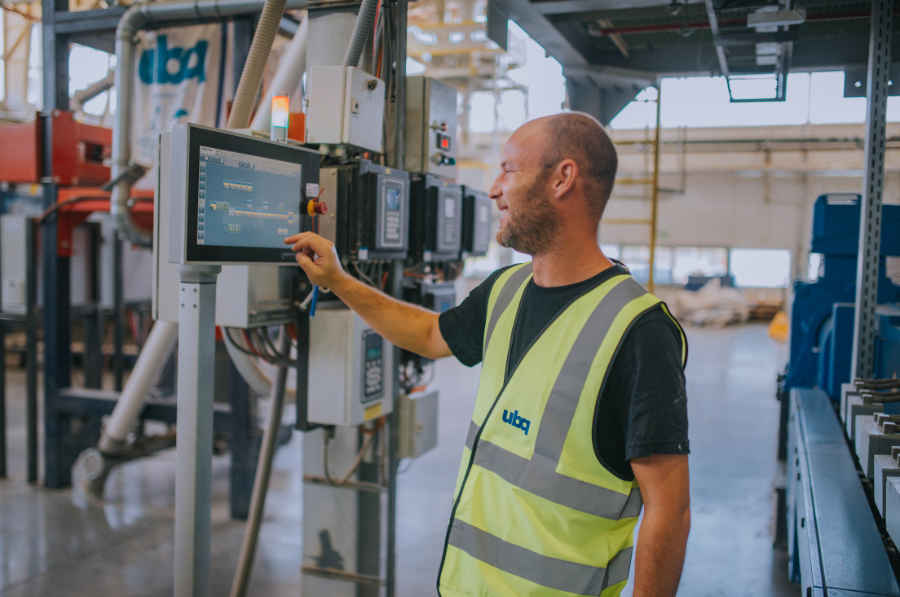Key Takeaways
- The main sustainability challenges in manufacturing today.
- How manufacturing processes impact resource consumption, emissions and waste.
- How waste‑derived raw materials like those from UBQ help redesign manufacturing systems.
- How companies can audit and optimize their manufacturing footprint for better sustainability outcomes.
Manufacturing Companies and Sustainable Manufacturing Processes
Manufacturing companies play a vital role in the global effort to achieve climate goals outlined in the Paris Agreement and at COP28. With the manufacturing sector accounting for a significant portion of greenhouse gas emissions and energy consumption, it is crucial for companies to adopt sustainable practices to minimize negative environmental impacts. Embracing sustainable manufacturing processes is key to achieving this goal.
Implementing better practices in manufacturing processes can lead to considerable environmental benefits and cost savings. By reducing effluents, optimizing energy consumption, and utilizing renewable energy sources, manufacturing companies can conserve resources and reduce their carbon footprint. Responsibly sourcing raw materials and incorporating recycled materials into production further enhances resource efficiency and waste reduction. Lean manufacturing principles and continuous improvement ensure economically sound processes while minimizing resource use, waste generation and energy usage.
UBQ Materials stands out as a pioneer in sustainable solutions for the manufacturing industry. Our innovative approach focuses on transforming unsorted household waste into a bio-based material, minimizing environmental impact and reducing reliance on fossil fuels. Through a clean production process, UBQ Materials converts waste into a valuable resource, exemplifying the potential of sustainable business practices within the manufacturing sector.
Manufacturing companies must recognize that their production processes have a significant influence on the environment and future generations. It is essential to adopt key technologies and invest in energy-efficient equipment, alongside monitoring systems to identify opportunities for improvement. Emphasizing the use of biobased and recycled materials throughout the supply chain can further enhance environmental performance.
Understanding the Challenges in Conventional Manufacturing Processes
Conventional manufacturing processes face significant challenges in the era of globalization, where the emphasis on quick and large-scale production for efficiency often overshadows environmental considerations. As a result, resource depletion, waste generation, and the carbon footprint of manufacturing operations have become pressing issues that demand attention. Excessive energy consumption, reliance on non-renewable resources, and the release of greenhouse gas emissions are contributing to negative environmental impacts that affect not only the manufacturing sector but also the well-being of future generations and the planet as a whole.
Addressing these challenges requires a paradigm shift towards sustainable manufacturing practices. Innovative solutions are needed to optimize energy consumption, minimize waste, and promote the reuse of materials and use of renewable over finite resources throughout the supply chain. Such modifications can significantly reduce both production costs and the carbon footprint.
Collaboration among industry associations, research institutions, and national institutes is crucial to drive progress in sustainable manufacturing. Through data analysis and understanding of consumption patterns, manufacturers can better grasp their ecological footprint and make informed decisions to improve efficiency and reduce negative impacts. Embracing sustainable materials, conserving energy, and optimizing production lines are essential steps towards a more sustainable future in which the manufacturing sector can play a pivotal role in environmental preservation and progress.
Importance of sustainable solutions for manufacturing companies
Focusing solely on short-term gains often leads some companies to overlook the long-term efficiency of sustainable practices, which can help preserve finite natural resources, minimize waste, and reduce ecological impacts. Embracing sustainable practices not only benefits the planet but also enhances the long-term viability and profitability of manufacturing companies.
Cost Savings
Implementing energy-efficient technologies reduces energy consumption and lowers utility expenses while recycling and reusing materials cut down procurement costs. Avoiding resource depletion of raw materials prevents future costs associated with climate change, providing substantial financial savings in the long run.
Reputation and Brand Value
Sustainability positively impacts a company’s reputation and brand value. Consumers today are more inclined towards environmentally responsible businesses, and companies that embrace sustainability can attract eco-conscious customers willing to pay a premium for greener products, resulting in higher margins and reduced pressure to manufacture at unsustainable rates.
Regulatory Compliance
Regulatory compliance is another crucial aspect, as many governments worldwide are introducing environmental regulations and standards. Adhering to these regulations helps companies avoid fines and penalties, saving them from potential financial losses and keeping them ahead of market restrictions in the future.
Access to Markets and Investors
Sustainable practices open doors to new markets and investors. Companies with strong sustainability practices are more likely to access environmentally-conscious consumer markets and attract socially responsible investors, gaining access to broader investment funds.
Efficiency and Productivity
Improved efficiency and productivity are inherent benefits of sustainable manufacturing practices. Reducing waste and optimizing processes lead to increased production output while saving resources, resulting in improved financial performance.
Carbon Offsetting and Trading
Companies may also participate in carbon offset programs, monetizing their efforts in reducing carbon emissions. Selling carbon credits to other businesses seeking to offset their emissions becomes an additional revenue stream for the sustainable manufacturer.
Green Certifications
Obtaining eco-friendly certifications and labels builds consumer trust and fosters partnerships with eco-conscious organizations, further contributing to revenue growth and reputation enhancement.
Long-term Viability
By investing in sustainable practices, manufacturing companies secure their long-term viability in a changing business landscape that increasingly values environmental responsibility.
The monetization of sustainable practices combines cost savings, market opportunities, improved productivity, and enhanced brand reputation, all of which contribute to the financial success of the company while fostering a more sustainable future for generations to come.
Advantages of UBQ Materials in Manufacturing Processes
Waste-to-Materials Approach
UBQ Materials offers several advantages in manufacturing processes that contribute to sustainable practices and environmental benefits. One of the key benefits is its waste-to-materials approach, where unsorted household waste is transformed into a valuable material that can be integrated into existing manufacturing processes to make everyday products. By converting waste into a biobased material, UBQ significantly reduces the negative environmental impacts associated with waste generation and fossil fuel reliance. Essentially, UBQ is accelerating the circular economy by closing the gap between the waste and materials ecosystems.
Reduced Carbon Emissions
UBQ Materials plays a crucial role in reducing carbon emissions, making it a climate-positive solution for manufacturing companies striving to meet their climate goals. Implementing UBQ’s sustainable materials in production processes allows companies to minimize their carbon footprint and work towards environmental sustainability. For every ton of Israeli-based UBQ used, manufacturers can prevent up to 11.7 tons of CO2eq.
One Material, Many Applications
One of the standout advantages of UBQ Materials is its high versatility and compatibility with existing manufacturing processes. This material swap is relatively easy for companies looking to adopt more sustainable practices, as it integrates into their current operations. This enables manufacturing industries to make the transition to more sustainable materials without compromising on profit and performance while meeting their sustainability commitments.
As manufacturing industries increasingly seek solutions to minimize environmental impacts, UBQ Materials emerges as a reliable partner in driving the manufacturing sector towards greater environmental sustainability, providing an innovative and effective way to tackle the environmental challenges faced by all industries.
Success Stories with UBQ Materials
Implementing climate-positive materials, like UBQ™, in your manufacturing process can have transformative impact. The use of UBQ™ has resulted in several success stories, showcasing the power of this biobased solution. Companies like Mercedes-Benz, Teknor Apex, McDonalds, Rimax, and PepsiCo, amongst others, have embraced UBQ™ to meet their sustainability goals and reduce their environmental footprint.
By utilizing unsorted household waste as a valuable raw material, these companies have not only contributed to waste reduction but also conserved natural resources, making strides towards a more circular economy.
Endless Applications and Impactful Collaborations for the Future of Sustainable Manufacturing
UBQ’s influence extends beyond just tackling the waste; it prevents greenhouse gas emissions, reduces resource-depleting raw materials and promotes energy efficiency in manufacturing processes. The integration of renewable energy into its supply chain further enhances its commitment to sustainable practices. With a focus on continuous improvement and lean manufacturing principles, UBQ Materials enables companies to optimize energy consumption, reduce waste, and get closer to net zero.
Through our contributions to reducing the environmental footprint, UBQ Materials is playing a vital role in driving the manufacturing sector towards environmental sustainability, setting the stage for a more responsible and eco-conscious standard.


